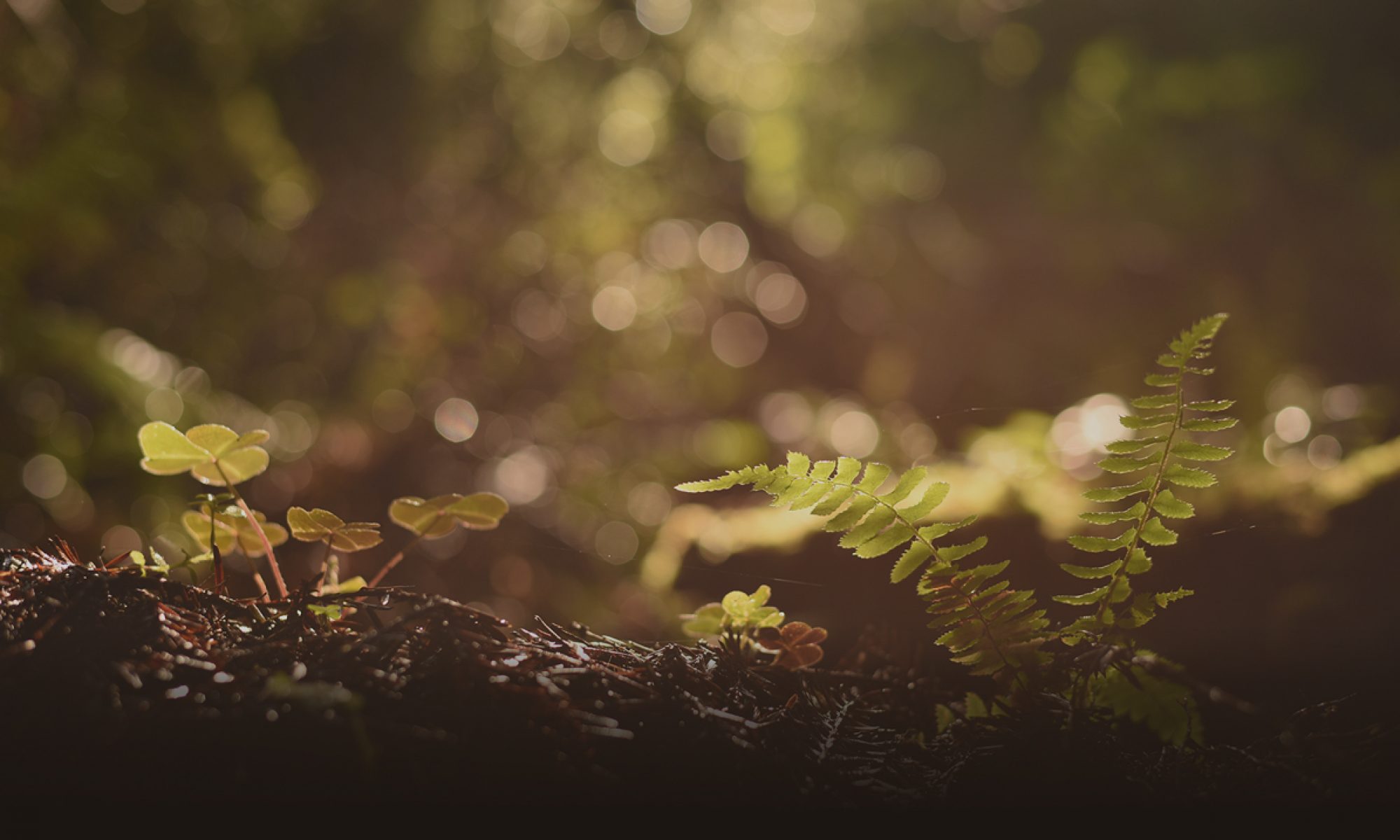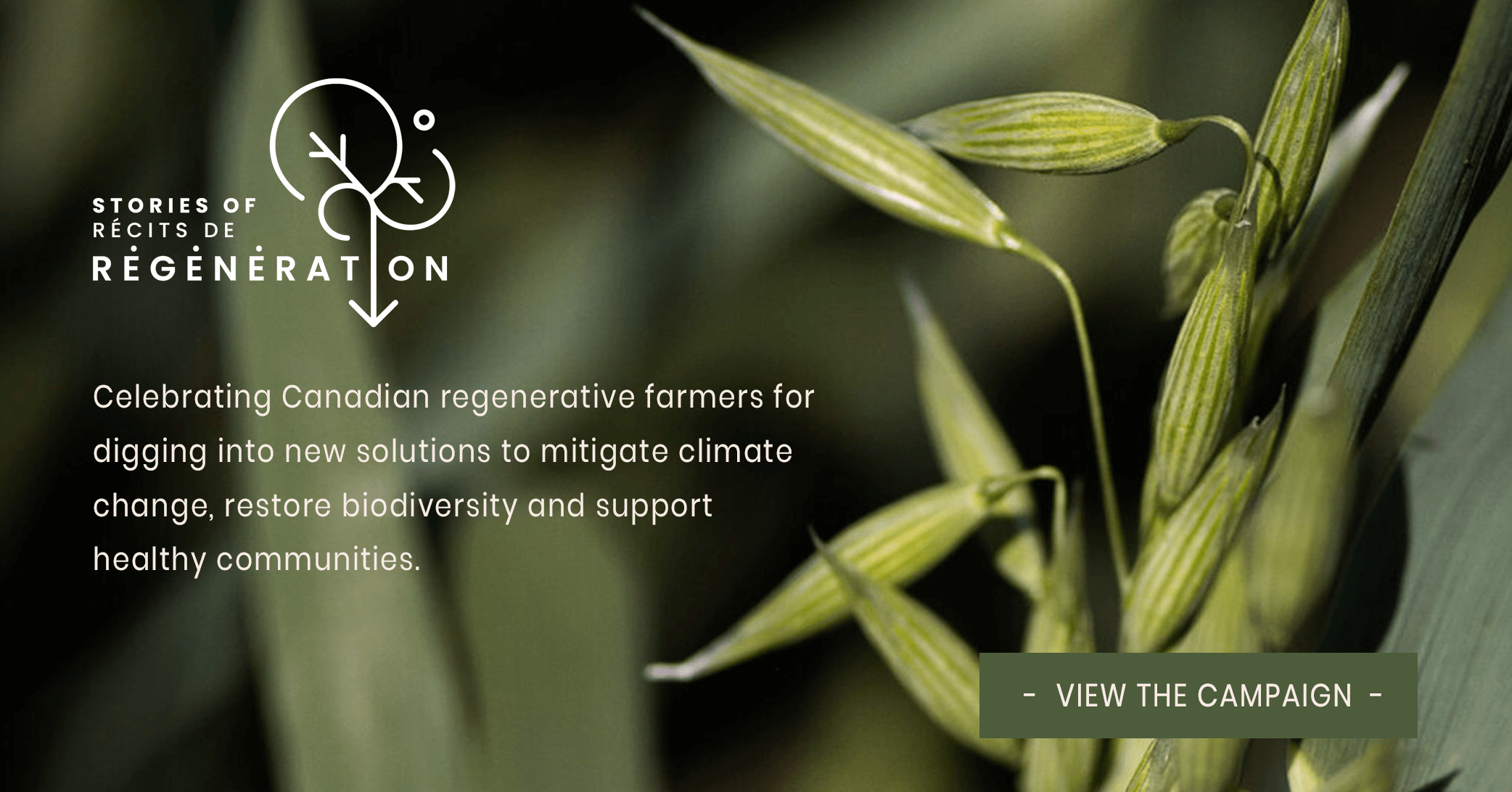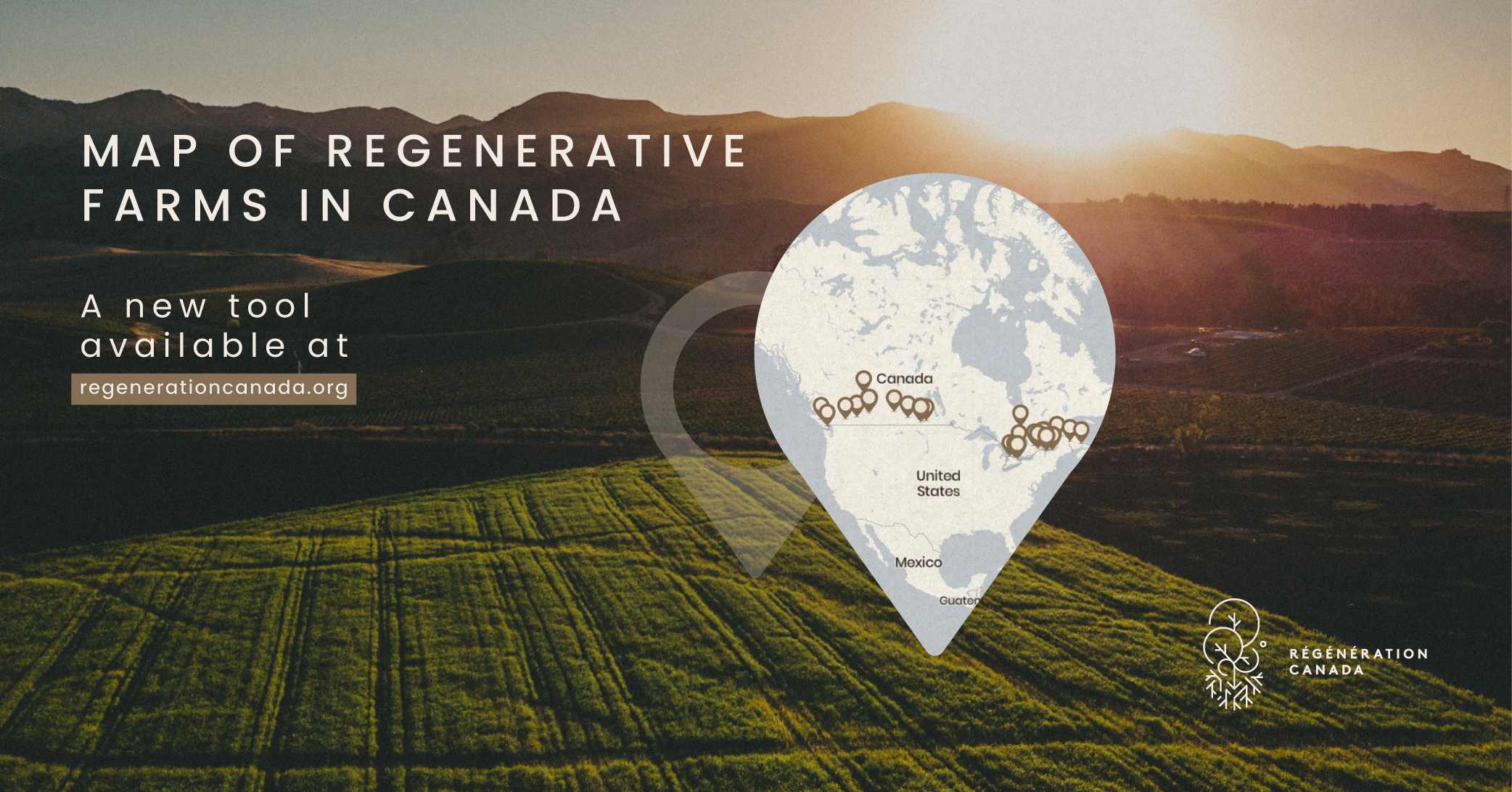To highlight International Compost Awareness Week (May 1 – May 7, 2022), we’ve decided to talk about how compost has an important role to play in soil regeneration. There’s a lot to love about compost. I can give three big reasons that compost is great and each of those contains sub categories of reasons.
1. Compost is nature’s big recycler
 Compost is nature’s big recycler of the nutrients contained in organic matter. It closes the loop of life. Nature designed a closed system which is perpetually sustainable. Plants grow, produce food and die. When they die, soil microorganisms break them down by composting, releasing the nutrients for the next cycle of life to grow again. When we take the organic matter or food away to use somewhere else, we break the cycle. If we compost our food waste and bring it back to the soil, we are closing that loop again. How much more sense does it make to bring that carbon and those nutrients back to the soil, rather than mixing them into landfill and using chemical fertilizers to feed plants?
Compost is nature’s big recycler of the nutrients contained in organic matter. It closes the loop of life. Nature designed a closed system which is perpetually sustainable. Plants grow, produce food and die. When they die, soil microorganisms break them down by composting, releasing the nutrients for the next cycle of life to grow again. When we take the organic matter or food away to use somewhere else, we break the cycle. If we compost our food waste and bring it back to the soil, we are closing that loop again. How much more sense does it make to bring that carbon and those nutrients back to the soil, rather than mixing them into landfill and using chemical fertilizers to feed plants?
2. Compost restores the soil’s microbiome
 Healthy soil has a complex and diverse community of microorganisms, called the soil microbiome. Through agricultural practices which actually harm the soil microbial communities, practices such as tilling, monocultures, and excessive use of salt based fertilizer and pesticides, our soils often have a very depleted microbiome. Composting is a controlled process which, when done well, produces a living product teeming with microbial life. When we add this microbial diversity back to a depleted soil, it regains its ability to perform the functions of healthy soil. These functions, based on the abilities of a diverse microbial community include:
Healthy soil has a complex and diverse community of microorganisms, called the soil microbiome. Through agricultural practices which actually harm the soil microbial communities, practices such as tilling, monocultures, and excessive use of salt based fertilizer and pesticides, our soils often have a very depleted microbiome. Composting is a controlled process which, when done well, produces a living product teeming with microbial life. When we add this microbial diversity back to a depleted soil, it regains its ability to perform the functions of healthy soil. These functions, based on the abilities of a diverse microbial community include:
The ability to make plant available micro and macro nutrients from organic matter
The ability to hold water in the soil, increasing resiliency to both drought and flooding
The ability to structure soil particles so that it holds air, resisting compaction and allowing plant roots to penetrate more deeply
The ability to sequester carbon in a stable form, thereby mitigating climate change.
The ability to deliver nutrients slowly over time, allowing plants to have them when needed but keeping them from being washed away into waterways.
3. Compost is a bio-stimulant: which means less pesticides, increased yields and more resilient plants
 We think of compost as a fertilizer because it does supply nutrients but it’s real value is as an inoculant. Bio-stimulants aremolecules which, in very small quantities do very powerful things. In a well managed composting process, the microorganisms create by-products of their metabolism. These can be organic acids, enzymes and hormone like molecules which stimulate the healthy growth and immunity of plants. Aside from delivering nutrients and restoring the living diversity of soil microorganisms, the bio-stimulant properties of compost can create a disease suppressive soil and boost the growth and yield of the plants growing in it.
We think of compost as a fertilizer because it does supply nutrients but it’s real value is as an inoculant. Bio-stimulants aremolecules which, in very small quantities do very powerful things. In a well managed composting process, the microorganisms create by-products of their metabolism. These can be organic acids, enzymes and hormone like molecules which stimulate the healthy growth and immunity of plants. Aside from delivering nutrients and restoring the living diversity of soil microorganisms, the bio-stimulant properties of compost can create a disease suppressive soil and boost the growth and yield of the plants growing in it.
So here are three more sub reasons to love compost:
It suppresses soil borne disease and allows us to reduce the use of pesticides
It increases the yield and size of plants
It stimulates plant immune functions
 Many regenerative practices, such as direct seeding, cover cropping and managed grazing involve recycling organic matter directly in the field. You might think that in that case, the addition of compost would not be necessary. However, Dr David Johnson, a microbiologist who shared his research at our recent Living Soils Symposium in Montreal, told us that in his four-year study in New Mexico, he found that regenerative practices combined with a compost inoculation produced significantly more biomass and sequestered more carbon than regenerative practices alone. So compost is definitely a great addition to regenerative practices for soil health!
Many regenerative practices, such as direct seeding, cover cropping and managed grazing involve recycling organic matter directly in the field. You might think that in that case, the addition of compost would not be necessary. However, Dr David Johnson, a microbiologist who shared his research at our recent Living Soils Symposium in Montreal, told us that in his four-year study in New Mexico, he found that regenerative practices combined with a compost inoculation produced significantly more biomass and sequestered more carbon than regenerative practices alone. So compost is definitely a great addition to regenerative practices for soil health!
What’s not to love?




